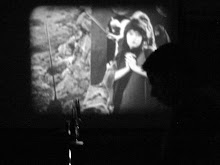Despite dizzying distinction this novel enjoys, single digit ranks in many all-time fiction lists, I didn't have it in my reading list of the next few years. Even Kubrick's screen adaptation wasn't going to make me read it any time soon. When an erudite friend started the novel, I felt it might make engaging dinner discourse.
Oftentimes with great novels I am surprised. This novel was no different, at least in two ways, it's first person narration and deft changes in genre.
A few lines in, I realized, this is a first person narration. Knowing the theme of the book, old-man-falling-for-an-adolescent, I didn't expect this, that too being put in the mind of the old man. If at all, POV from the pubescent seemed the way to go to evoke pity. This takes guts, irrespective of the era, telling the story from the mind of a tyrant. Nabokov manipulated me in the first few pages even. H.H., two first names, same first and last names, loses his first love in adolescence. In fact, he has a Kuala Lumpur Police Department [KLPD] moment, courtesy Animal's People, and ever since all sexual encounters conjure up images of his KLPD, thereby leading to a dissatisfaction. We, as readers, feel this too, which wells up an intended pathos, of sympathy, for HH. The first person narration makes it all the more effective.
If there is drama up to this point, there is some sort of comedy to follow. H.H. is a tenant to a widowed landlady, Ms. Haze, amd, more importantly, her nymphet daughter, Dolores, a.k.a. Lolita, with aliases aplenty. Characteristics attributed to Mrs. Haze, from miss to mrs. on account of her marriage to H.H., and her neighbours keep the comedic section of the book going. McFate, I love this euphemism, gives H.H. an opening, or is it an H.H. super-duper plan, to leave town with Lolita.
With the two genre changes, drama to comedy, the novel keeps going. There is a noirish build up to the (reverse) seduction in a dingy motel, following an equally suspenceful pick-up of Lolita from a summer camp. For the romantic, there is an artistic description of Lolita's tennis form, something only a lover of Lo, and tennis, can observe. Then there are all the road-trips these two take, reminding me of The Motorcycle Diaries, or even the yet to view Zindagi Na Milegi Dobara. Then there is the feel of James Hadley Chase novels where the miscreants are in possession of the only gun. There is the usual disdainful spite of adults towards youth pop culture with H.H.'s contempt of Lolita's reading and listening habits. There is also a point, I too noticed this soon after coming to the US, Nabokov makes of scenery in the US as visually arresting but harmful to humans from close quarters.
The first person narrative put me in the mind of the wrong-doer. I realized that not every crime is committed in cold blood. Criminals could be acting from involuntary compulsions, which, I don't say, excuse them from committed crimes. Perhaps I should read more novels written in first person.
The deft changes in genre I loved. If I write fiction, I want to have this quality. This, I feel, can help me overcome some fallacies of fiction in the second and third acts. This is also one of the things people who haven't read the book may not know of. Over the years, it has been talked about as a very very bold, sexual book. Having read it, I can say it is so much more than pedophilic pornography.
Evoking a Rajeev Masand finish to a review: For surprising me, and overcoming vertigolike anticipation, I am going with five stars for Vladimir Nabokov's Lolita.
Rating: 5/5
